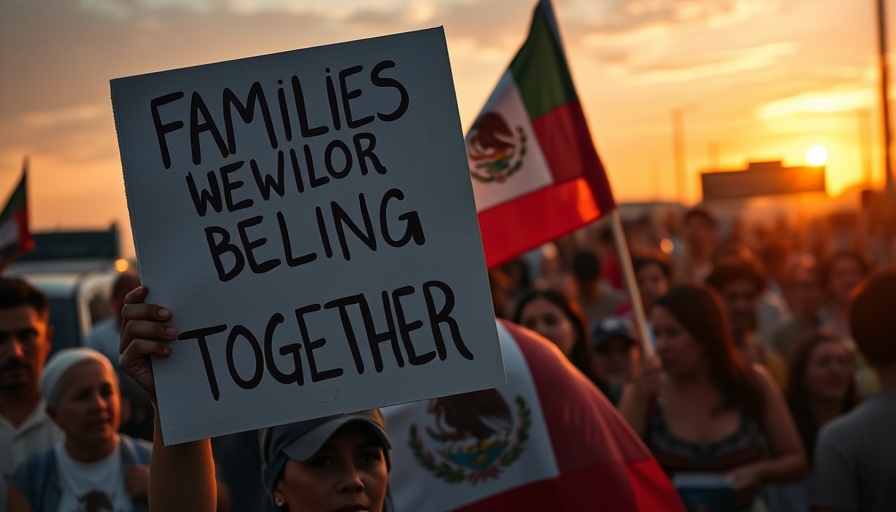
Naturalized Citizens: A Vital Part of America
Naturalized U.S. citizens are more than just individuals with legal papers; they represent a mosaic of cultures, hopes, and dreams that enrich the American identity. Recent efforts by the Trump administration to denaturalize certain citizens have raised serious concerns about the security and rights of naturalized individuals, a topic that evokes deep emotional ties to family, heritage, and belonging.
Understanding the Numbers of Naturalized Citizens
Over the past decade, the U.S. Citizenship and Immigration Services (USCIS) has celebrated welcoming 7.9 million new citizens into its fold. In fiscal year 2024 alone, 818,500 individuals achieved naturalization, bringing the total to approximately 2.6 million new citizens over the past three years. These statistics highlight the ongoing commitment of individuals striving for a better life in the United States—a testament to the resilience and aspirations of immigrant communities.
Controversial Deportation Efforts
In a significant policy shift, the Department of Justice has been directed to aggressively pursue denaturalization of some U.S. citizens. According to a June 11 memo, the focus is squarely on individuals who have committed serious crimes or misrepresented their applications for citizenship. These measures, justified by the administration as necessary for national security, raise serious questions about the fairness of targeting naturalized citizens. Can a country that prides itself on freedom and democracy justify the stripping of citizenship from those who have earned it?
The Broader Implications of Denaturalization
The possibility of naturalized citizens facing deportation primarily due to past misdemeanors or misrepresentations is alarming. Scholars and advocates argue that these actions could set a dangerous precedent, creating an atmosphere of fear within immigrant communities. The notion that being a naturalized citizen—despite having gone through the rigorous process—does not guarantee safety from deportation feels counter to the ideals of trust and acceptance that underpin American society.
Reflection on Community and Belonging
Ultimately, the fate of naturalized U.S. citizens impacts not just them but the fabric of American society itself. Community is built on mutual respect and understanding—values that resonate strongly in households across the nation. By understanding the struggles and the potential threats that naturalized citizens face, we may cultivate greater empathy and advocacy for policies that protect rather than alienate those who contribute to our collective identity.
Conclusion: The Need for Solidarity
As we navigate these turbulent times, it's essential for communities to stand in solidarity with naturalized citizens. Advocacy and awareness can foster an environment where all individuals, regardless of their origin story, can feel secure and valued. Let's champion policies that uphold the rights of every citizen, ensuring that the American dream remains a beacon of hope for all.
 Add Row
Add Row  Add
Add 



Write A Comment